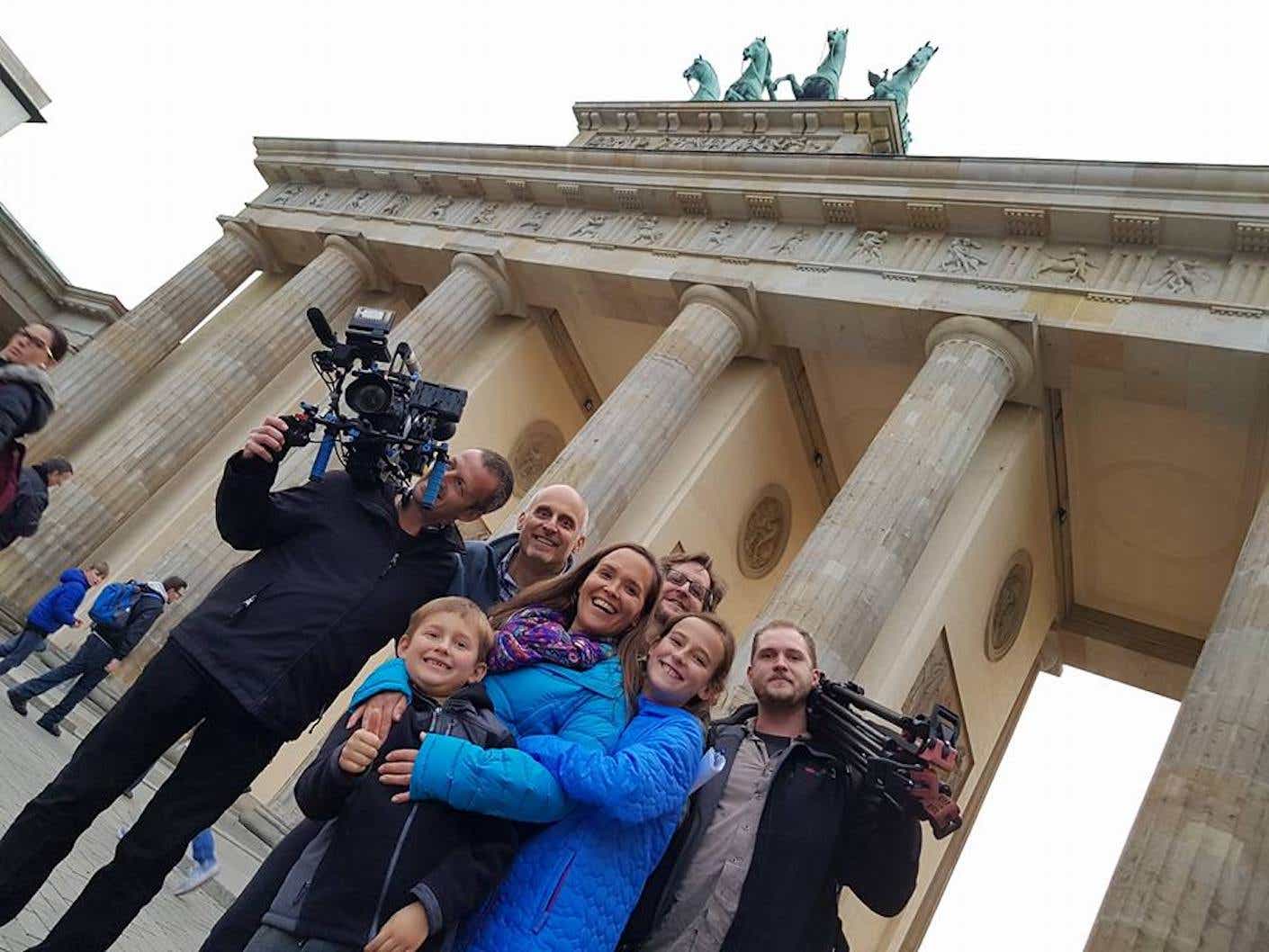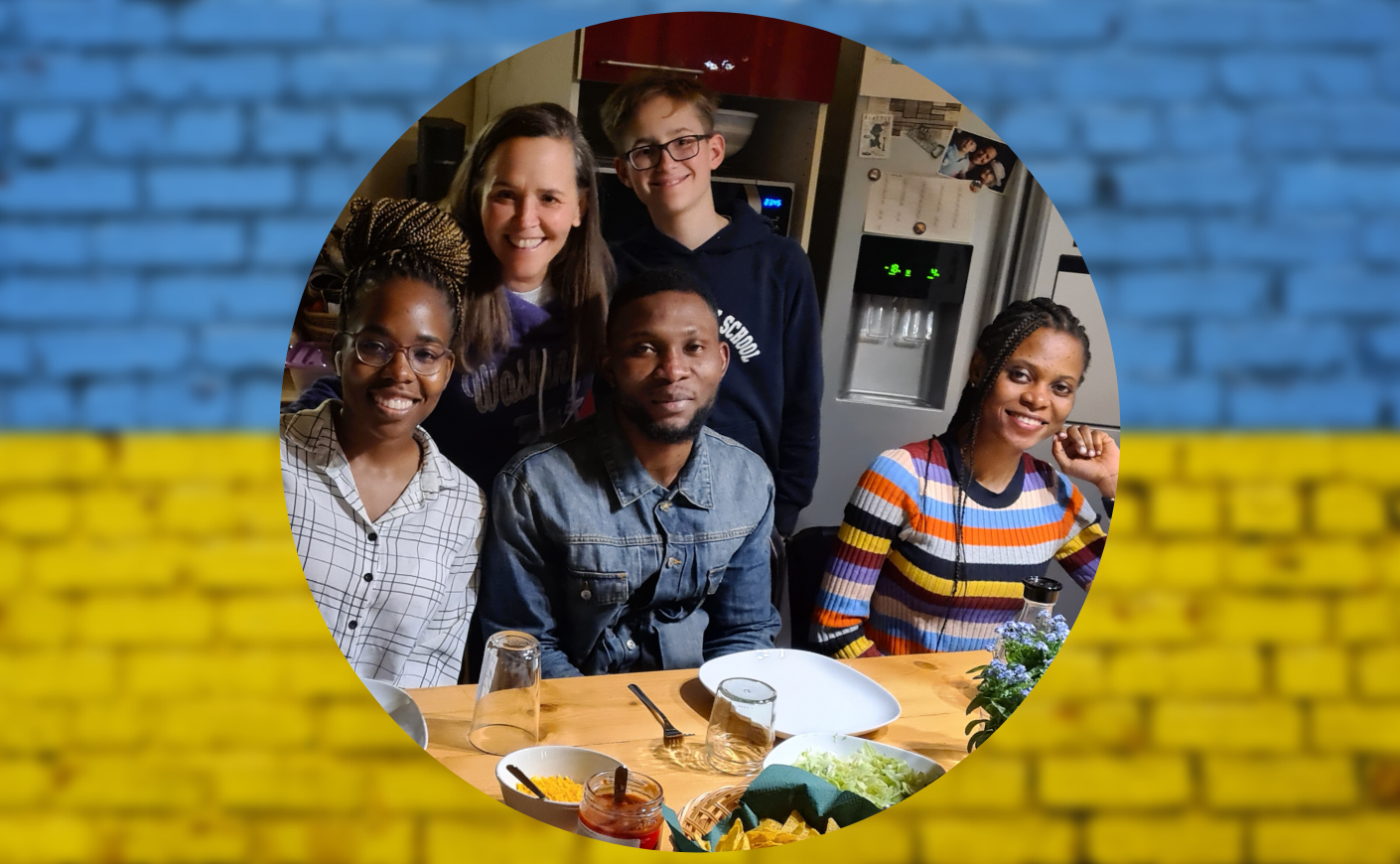Ten million people have left their homes since Russia invaded Ukraine on February 24, 2022, and more than 3.6 million refugees have fled to neighboring countries like Poland, Romania, Moldova, and Hungary. According to UNICEF, the Russian invasion has displaced some 4.3 million children in the past month — creating the fastest large-scale displacement of children since World War II. (Katie spoke to the CEO of the International Rescue Committee about Ukraine’s refugee crisis.)
Berlin, Germany’s capital city, has become another major hub for hundreds of thousands of Ukrainian refugees looking to go farther west. Every day, around 7,500 refugees — mostly mothers and children — arrive in Berlin’s central train station, where they are warmly greeted by thousands of volunteers offering food and other necessities, as well as complete strangers who are there to offer up rooms in their homes for Ukrainian refugees. We spoke to Marty Riemer, a Seattle native who now lives in Berlin with his family, who, like so many other people, was inspired to go down to the train station and open up his home to those in need.
KCM: Tell us about you and your family.
MR: Our family’s originally from Seattle and we came to Berlin for a year just for a family experience. My family is German and my kids are German American dual citizens, but we came just for a year and that was five years ago. So we have overstayed our welcome here in Berlin. We live in the sleepy Southwest corner of Berlin. I’m a radio announcer by trade and actually was doing a radio show in Seattle live from Berlin for many years, and now I’m not doing that anymore. Now I have a production company, which I can run from anywhere.
What made you decide to open up your home and host refugees?
Well, you couldn’t avoid hearing about the main train station in downtown Berlin, where all the refugees were flooding in. They were in need of food and people who could provide shelter. They needed translators. The needs were just endless. So as soon as we had a moment, which was a couple of days into the war, we went down to the train station — myself, my wife, and our oldest daughter. And it was a really strangely positive experience. There were probably three times as many volunteers as there were refugees and there was so much food and baby strollers that had been donated — it was really overwhelming.
How did you get involved?
One of the people that my wife works with, she’s a teacher here in Berlin, and one of her colleagues had volunteered with this organization that was finding housing for the folks as they arrived at the train station. And so he called us up and said, “do you have space?” And we said, yes. So right away, they put us in touch with a woman named Maria, who was a student from Nigeria who had gotten her master’s degree in economics and was working in Ukraine when the war suddenly broke out. She told us about how she left work and went home one night and all of a sudden heard a huge explosion. She just grabbed her bag, went to the train station in Lviv, which is the biggest city that’s close to the Polish border, and then went to Poland and then went on to Berlin. And she showed up here and connected with another connection of hers that had arrived in Berlin, who was living and studying medicine in Ukraine and had a medical degree from Ukraine. He’s with us now, his girlfriend has joined us as well. So it’s quite a party here.
Tell us more about what you’ve learned about your guests and how they got to Berlin.
We have dinners with our guests every night. We’re trying as much as possible to create a soothing environment considering they came from such chaos. So every night our family has dinner with these guests. And it’s fascinating because we ask them about their experiences. Maria was the first one to arrive. She lived in Lviv and said it was insane because that is where everyone was trying to flee to Poland to get out of Ukraine. And it was insanity.
The woman who’s moving in with us tonight showed up a couple of days ago and is friends with one of the other houseguests. She arrived with a cat in her backpack with a little window on it. She had gone to the train station in Lviv and they were going to put her onto a train to go to Poland, but they wouldn’t let her get on with her cat. And so she said, “Nope, not gonna do it.” She stayed there until she got the proper paperwork so that her cat could be transported across the international border. And now she’s made it all the way to Germany with her cat.
What’s it like in Berlin right now?
Berlin dealt with this for 50 years during the Cold War. So it’s interesting to see the Germans deal with this now. And there’s a great deal of empathy for the Ukrainians, and I sense the Germans are trying to make right for their history. But it’s also like, the old Germans are a little bit like, stay calm…we’ve been through these anxieties before in the past.
We’re not close to the war so much, but we are close to the effects of the war — the humanitarian impact of it. And yet it’s also weird that life goes on. If you walk down the streets in Berlin, life is fairly normal.

How long are you planning on hosting your guests?
We ask ourselves all the time, well, how long does this last? But then we tell ourselves, that’s exactly what they must be asking themselves, “what’s next?” There were times in the beginning when we thought, what are we getting into? But we also knew that in order to be of any use to these people who have gone through this trauma, we needed to take that stress off their minds and say, “stay as long as you need to stay, figure your stuff out, and we’ll be here for you.”
Do you see your family continuing to help refugees as long as this violence continues?
My guess is when, when our house is empty again, and there’s still a demand, that we would very well open up our house again. I mean, this experience has been really good.
If you can’t host refugees but still want to help, we’ve compiled lists of ways to give back to Ukrainian refugees and brands to shop that are supporting Ukrainian refugees.









